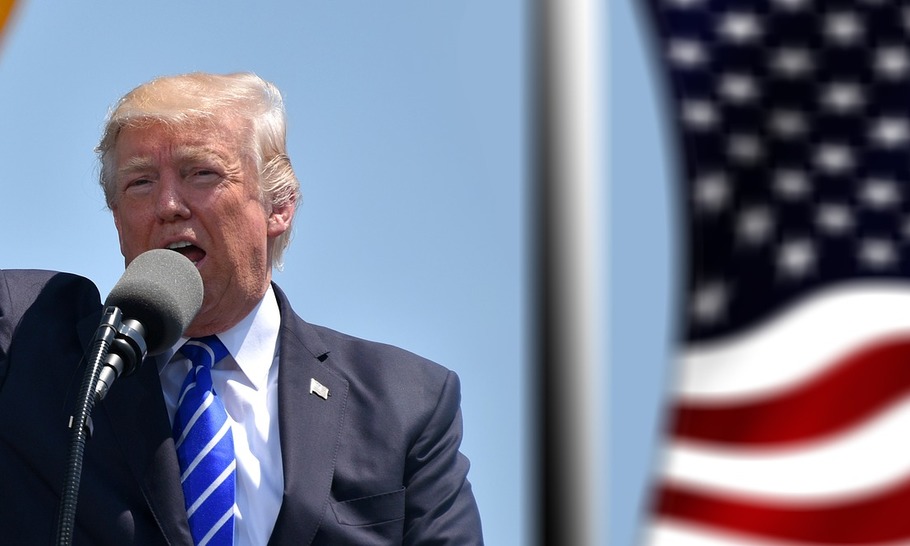Why Trumpism won’t replace conservatism

Many pundits and political observers were stunned when Donald Trump won the 2016 U.S. presidential election.
Some viewed Trump as a pariah who had the innate ability to bring out the worst elements in our modern political landscape. Others wondered if he had inadvertently given birth to a new political ideology, “Trumpism,” that could potentially supersede American conservatism.
With respect to the latter, I was among those who took a more balanced approach to his guiding philosophy. Trumpism could potentially overtake conservatism, depending on how his presidency was received by Americans, but modern conservatism and the U.S. Republican Party would fight tooth and nail for survival.
It’s now 2019, and I can say with confidence that Trumpism will not overtake conservatism – and those preconceived concerns were never real to begin with.
Let’s go back a few steps. The businessman/reality TV star’s unconventional campaign had consistently defied conventional political wisdom. He threw away the traditional playbook employed by most political candidates. His support for ethnoculturalism and economic nationalism, which was viewed as being akin to political suicide, earned him the broad support of Americans from all walks of life. His electoral success was seen as being part of the global populist wave that encompassed Brexit in the UK, Italy’s Five Star Movement, socialist-leaning U.S. Democratic presidential candidate Bernie Sanders, French President Emannuel Macron and the late Toronto Mayor Rob Ford.
Indeed, Trump is a different political animal than any previous U.S. president in history – or most world leaders, for that matter.
He’s neither a conservative nor a Republican, in the traditional or modern sense of the word. He doesn’t have a consistent political ideology, which enables him to mix right-leaning positions (lower taxes, war on terrorism, pro-life judicial nominees) and left-leaning positions (protectionism, anti-free trade, support for same-sex marriage) almost at will.
Kalefa Sanneh wrote in The New Yorker on Jan. 9, 2018 that his presidential victory gave Americans “a way to take a stand against both ambitious liberalism and insufficiently ambitious conservatism.” Meanwhile, former Republican House Speaker Newt Gingrich told Mark Levin on Fox News on Oct. 29, 2018, “I’m not sure [Trump is] a conservative, but he’s the most effective anti-liberal in my lifetime.”
The U.S. President is, therefore, closer to a political chameleon. He refuses to let modern political ideology define his ideas, policies and presidency. He adeptly uses social media to create trial balloons that ultimately help shape the White House’s position on issues like the partial government shutdown, building a border security wall with Mexico, and building relations with communist North Korea. He can frustrate the political right and political left on the same issue for different reasons, and still receive the same reaction that he publicly or privately craves.
Trumpism isn’t much different. The leading lights of his presidency, which include Gingrich, Levin, National Economic Council director Larry Kudlow, National Security Advisor John Bolton, author/historian Conrad Black and Prof. F.H. Buckley, have valiantly attempted to construct an intellectual framework to place it squarely on the right side of the political spectrum. But in reality, it’s little more than a catch-all philosophy that follows its figurehead’s mishmash of views on politics, economics and culture.
Hence, conservatism’s rich history and ideological consistency isn’t going to be uprooted by a myopic concept that crosses the left-right political divide without batting an eye. Trump simply isn’t the second coming of Benjamin Disraeli and Edmund Burke, or Barry Goldwater and Ronald Reagan.
Nevertheless, this doesn’t mean author John Steele Gordon’s intriguing analysis in his Jan. 14, 2018 Wall Street Journal op-ed, where he suggested Trump’s victory could end up being one of those “rare occasions” in which “deep historical currents and extraordinary political talents produce an entirely new order,” is entirely wrong.
Republicans would be wise to consider incorporating some of Trump’s more successful political and economic strategies. For instance, his ability to identify with the “forgotten men and women” strongly resonated within Middle America. His push for a revised North American Free Trade Agreement that puts American interests, business and jobs first was music to the ears of people living in economically depressed communities. His push to “drain the swamp” and “Make America Great Again” won over legions of voters who were frustrated with the policies and general mindset of Washington elites.
If this were to happen, Trumpism could ultimately serve as a little tugboat that helped reshape the large ship of conservatism, back toward policies that benefit all Americans, including the working class. In turn, the Republican Party would reap huge benefits at the polls from a more diverse group of potential voters and long-term political supporters. It’s a winning political strategy that would likely earn the support of most U.S. conservatives, be they pro-Trump or anti-Trump.





